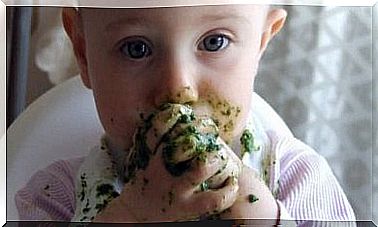Why Is The Second Child More Disobedient Than The First? – Being Parents

When we are mothers for the second time, we may believe that the second child is a little more rowdy than the first and we often wonder what the reasons are.
First, make an absolute statement of this principle is a mistake, because every family is different and, therefore, that all children are not the same.
We have heard that every child is a universe, and there is nothing more true than that. We adults also preserve this innate difference that makes us individuals.
However, there is one thing to consider. The way each child acts is influenced by the environment in which he evolves. In other words, if there are other children in the family, the age at which he is going to kindergarten for the first time, which adult is taking care of him – his parents, grandparents or a nanny- or if he has enough space to have fun.
Parents facing children
In short, there are several circumstances that will help to draw the child’s personality. And among them, there is one that stands out strongly from the rest: the way parents treat each child.
Parents firmly assure that the directives in education have been the same for each child, but seen from the outside, certain variables are not perceived in their right dimension by the smallest of the house. What are we talking about here?
With the second child, parents feel more relaxed than with the first. When we are novices to accomplish the difficult task of educating, we are more attentive to each stage of the child, with the aim of meeting all his needs and ensuring his safety.
Overprotection
The little ones tend to surpass their elders in their character, their silliness and their inventions.
But sometimes we cross the thin line of caution and end up becoming overprotective parents who become the shadow of the child. Indeed, we photograph and film the little one very often, to have proof of each moment that turns out to be a great novelty for us: his first word, his first fruit, his first step, to name a few. .
With the second child, we leave the camera aside. Filming each of these steps is not a priority. Time and attention should be divided equally between two children, and in this we do our utmost, no matter how wrong we are.
The path traveled with the elder helps us to allow the little one to create a space for action that will give him more freedom compared to the older brother, and no doubt by feeling more sure of himself, he will be more daring and will venture to experience more things.
Parents tend to be less strict with the little ones.
Indeed, scientific studies carried out in Europe and the United States agree that the second child is often more disrespectful and adventurous. He grows up with a different notion of rules and discipline, so he will seek to find a place for himself among the other members of the family.
It is not because we care less about the second child, but it shows the way and the little one can take the opportunity to cope with a freedom that the first did not enjoy.
In the footsteps of the elder
The easiest way to learn is through example. It doesn’t matter how many times you tell your child to get off the cabinet, not to dirty the walls, or to throw food on the floor.
If the little one sees that the elder is doing these nonsense, he will repeat them as something normal and he may even surpass the audacity of his big brother, whom he singles out as his main opponent for the attention of parents.
Seen from this angle, if the elder writes his name on a wall, the smaller one will scribble his own and also draw a landscape that covers the entire wall in order to mark the difference.
As if that were not enough, the youngest appreciates his condition as a junior. From the start, he will know that everyone around him – including the elder one, is treating him with gentleness and flexibility, making him feel like the king or queen of the house. And that will be enough to get the right to do things as they please.








